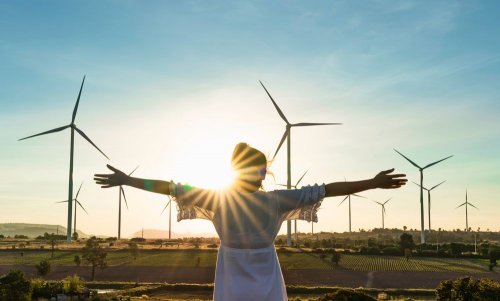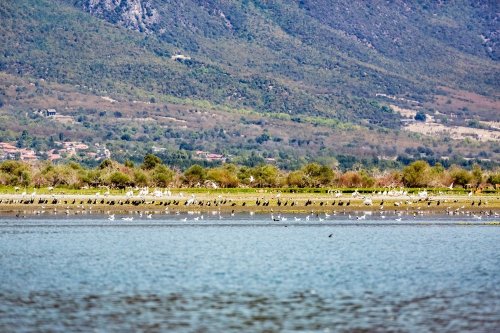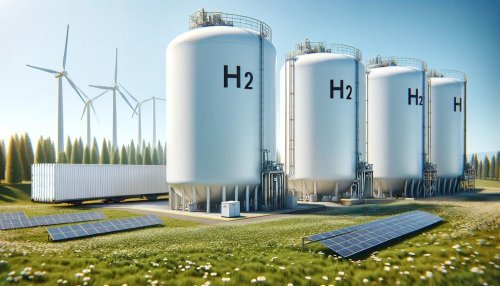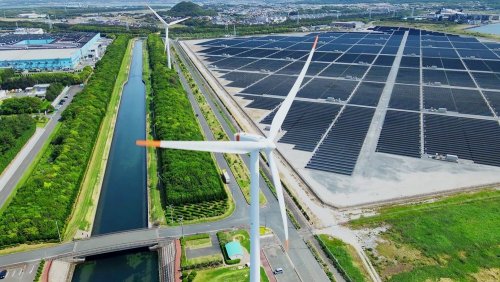The European Commission, the European Parliament and the Council of the EU said that the energy crisis against the background of full-scale war forced the agencies to introduce new measures to rapidly reduce the demand for electricity.
Institutions have tried to reduce their impact on the environment for years, but now they are moving more intensively towards greener, energy-efficient buildings and increasing the use of green energy, EURACTIV reports.
According to the member of the European Parliament from the Green Party, Ciaran Cuffe, the EU institutions can and should be leaders in the transition to buildings with high energy efficiency.
"In light of the recent increase in energy prices associated with Russia's ongoing invasion of Ukraine, energy conservation and energy independence have become even more important and relevant," the press service of the European Parliament said.
- European Commission
The material emphasized that from mid-2021, the European Commission reduced the heating temperature of its buildings by 2°C in winter and increased the cooling temperature by 2°C to 25°C.
It says that between 2015 and 2021, the total energy consumption of European Commission buildings in Brussels and Luxembourg fell by 20% thanks to lower demand, better use of office space and better energy efficiency. However, achieving climate neutrality by 2030 requires a new level of action.
The article emphasized that in 2019, buildings and workplaces accounted for 43% of emissions. By 2030, these emissions must be reduced by 30%, as well as reduce the number of occupied buildings, solve the issues of reconstruction and new construction.
The European Commission has about 100 installed heat pumps and four buildings with a total solar panel area of 340 m2. A CHP is also being installed at the Berlaymont building, which should be operational this summer and provide 169 MWh of electricity per year.
- Council of the EU
It is noted that the Council of the EU reduced the heating temperature in its offices to 19°C, in the atrium of the Justus Lipsius building to 16°C, and in the forum of the Europa building to 14°C. In summer, the temperature for starting the air conditioner will be increased to 27°C. This will help reduce energy consumption.
The authors said that the average energy efficiency of EU Council sites improved by almost 30% between 2010 and 2021, partly due to lower usage during the COVID-19 lockdown. The Council's latest environmental policy, adopted in 2019, aims to reduce primary energy consumption through more renewable energy sources and efficiency measures.
The article emphasized that the Rada uses solar energy, although most of its heating is gas.
- European Parliament
It is noted that the European Parliament has reduced gas and electricity consumption by approximately 25% since 2012, and emissions by 59.7% since 2006. The institution has already carried out repairs, reconstructions and replacements to improve environmental performance. Buildings in Brussels and Strasbourg are currently rated B- to F on the energy efficiency scale, with one building in the highest category and 14 at D or below.
To assess what further work is needed, the European Parliament started a technical assessment of its buildings in December 2022, which is expected to be completed in the summer.
The article emphasized that since 2008, the parliament has been purchasing only green electricity. Solar and heat pumps are already used in some buildings, and in 2023 they plan to increase the number of photovoltaic installations.
Earlier, EcoPolitic wrote, that in the EU are planning to increase the share of renewable energy in the total energy consumption of the block up to 45%.
As EcoPolitic previously reported, the forecast of the oil and gas giant BP (formerly British Petroleum) showed that the Russian-Ukrainian war will affect the long-term demand for energy and will accelerate the global green transition.





